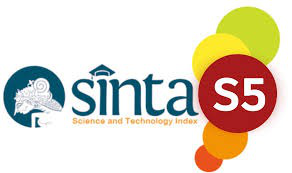Developing Fine Motor Skills Through Calligraphy Art in Early Childhood
Siti Hadiaty, Dede Irman
Abstract
Fine motor skills are an important aspect of early childhood development that is often overlooked. This study aims to describe the effect of calligraphy art activities on the development of fine motor skills in early childhood in a mosque environment. This qualitative study with a descriptive observation method involved children aged 4-6 years in three calligraphy activity sessions. Data collection was carried out through field notes, documentation, and informal interviews with parents and caregivers. The results showed a significant increase in children's ability to control writing tools, drawing accuracy, and eye-hand coordination. In addition, calligraphy activities also provide space for children to develop creativity and self-expression. The calm and supportive mosque environment has been shown to have a positive impact on children's concentration and patience. This study concludes that calligraphy activities can be a creative learning method based on religious values to develop fine motor skills in early childhood
Keywords
Fine motor skills, calligraphy, early childhood, creativity development, mosque environment.
DOI:
https://doi.org/10.46336/ijeer.v5i1.841
Refbacks
There are currently no refbacks.
Copyright (c) 2025 Siti Hadiaty, Dede Irman
Published By:
IJEER: Jalan Riung Ampuh No. 3, Riung Bandung, Kota Bandung 40295, Jawa Barat, Indonesia
IJEER Indexed By:
<div class="statcounter"><a title="Web Analytics" href="https://statcounter.com/" target="_blank"><img class="statcounter" src="https://c.statcounter.com/12520676/0/8be648d7/0/" alt="Web Analytics"></a></div> Creative Commons Attribution 4.0 International License .
View My Stats
 This work is licensed under a Creative Commons Attribution 4.0 International License.
This work is licensed under a Creative Commons Attribution 4.0 International License.








